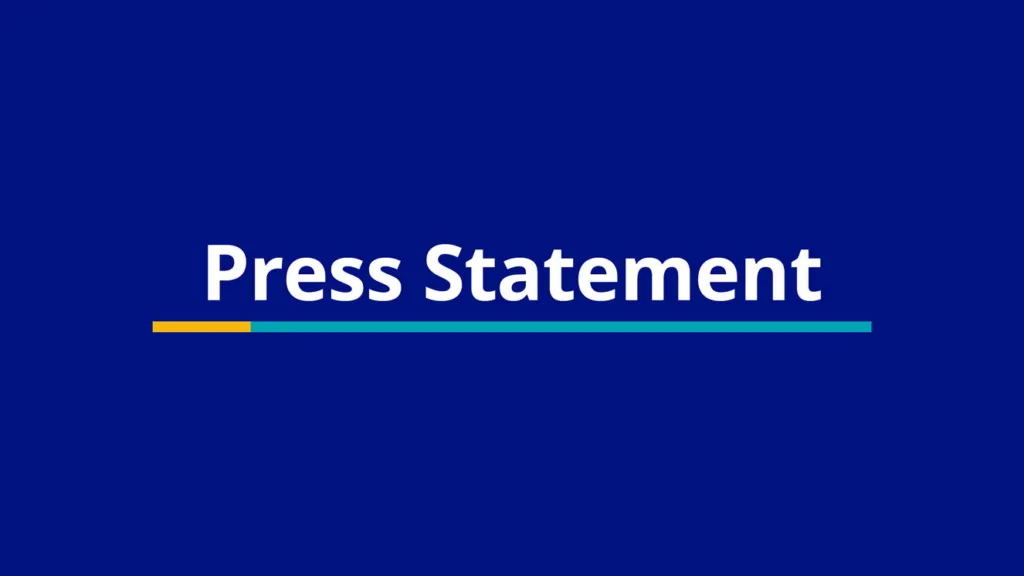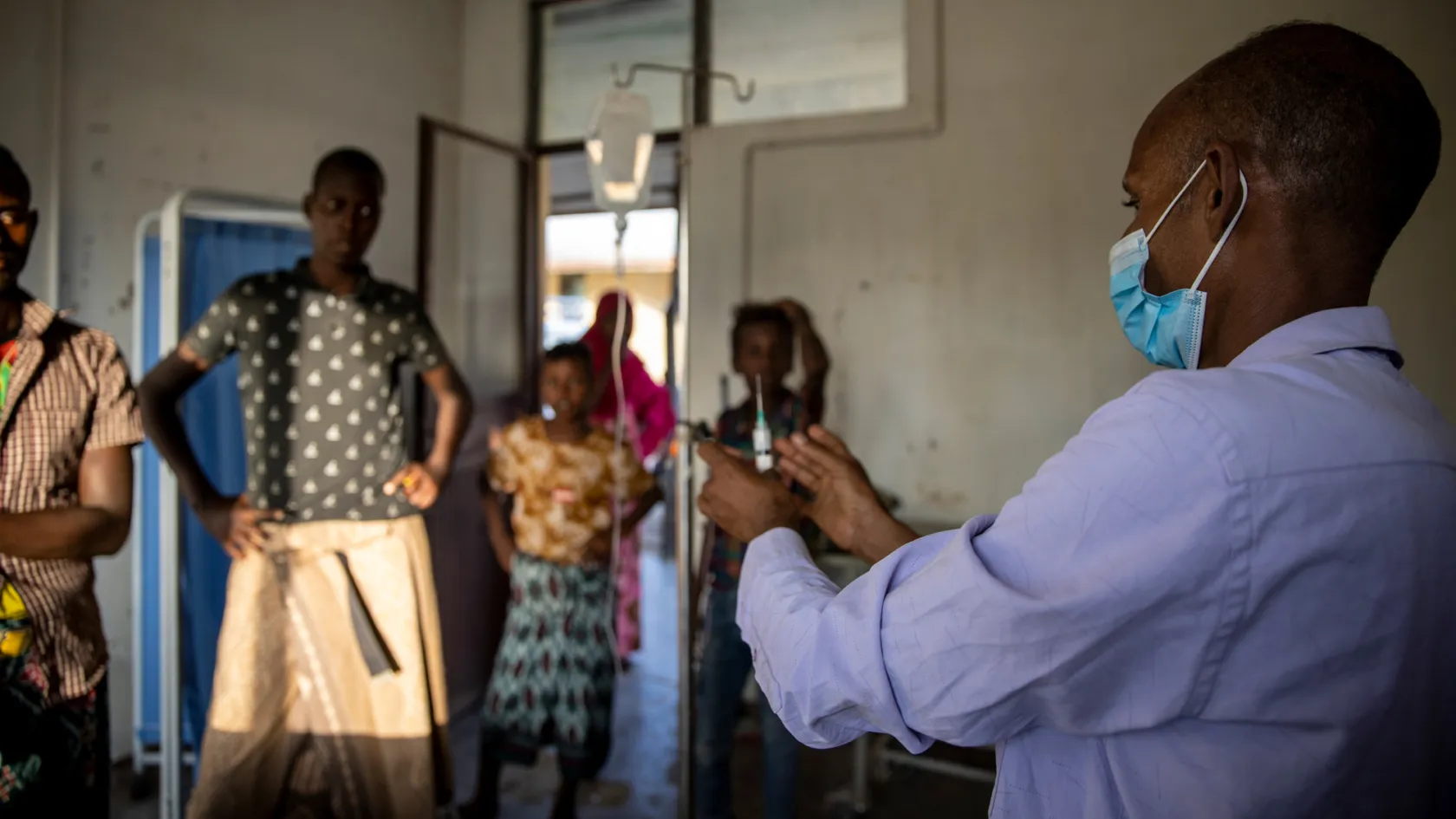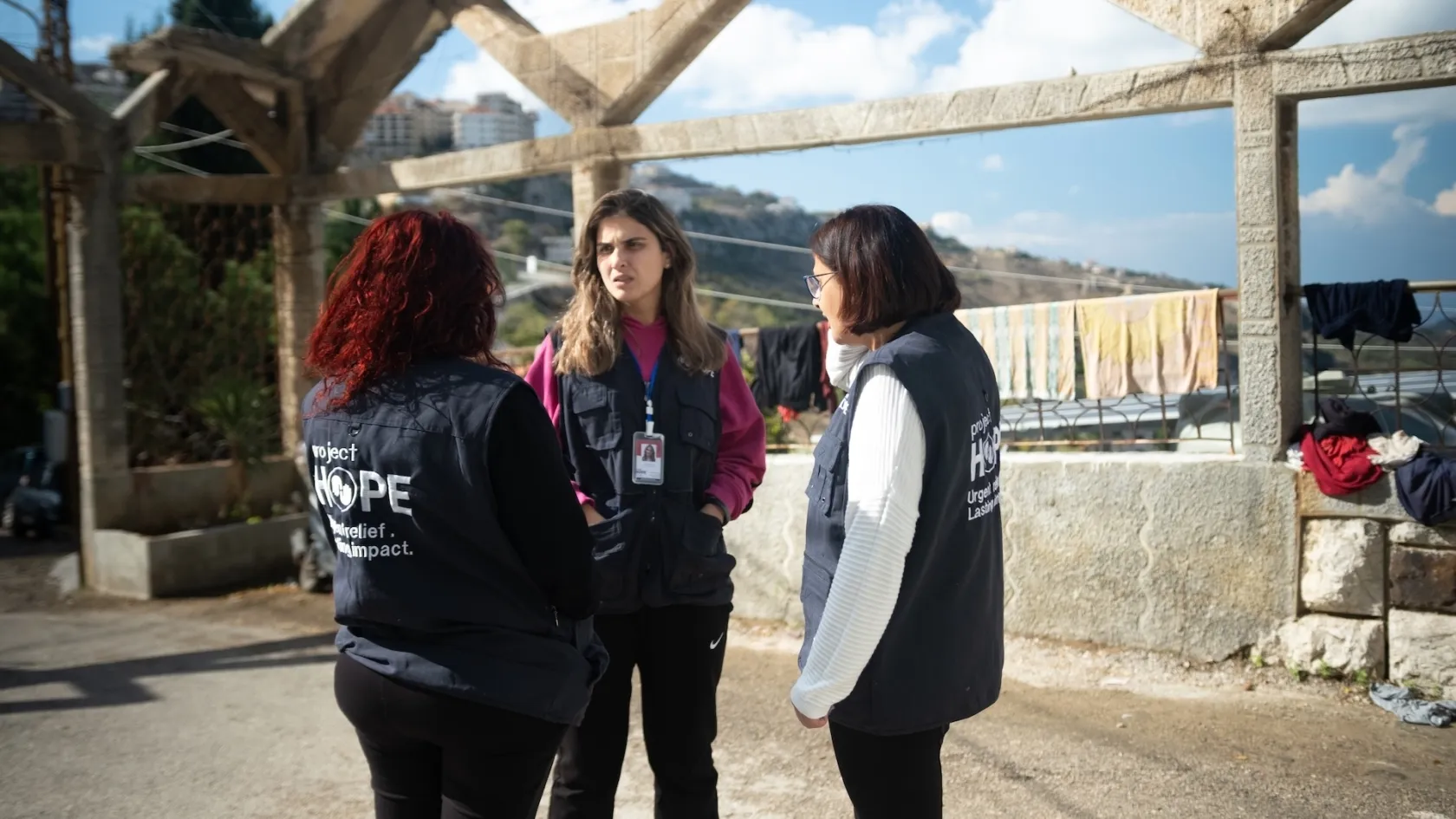Project HOPE’s Senate Testimony Regarding U.S. Health & Humanitarian Funding for Fiscal Year 2025

Washington, DC (31 May 2024) – Project HOPE’s President & CEO, Rabih Torbay, submitted written testimony regarding the Fiscal Year 2025 Appropriations to the United States’ Senate Appropriations Committee and the Subcommittee on State, Foreign Operations, and Related Programs. Below is his testimony:
Thank you, Chairman Coons, Ranking Member Graham, and members of the Subcommittee for your strong support of U.S. leadership in global health and humanitarian assistance and for the opportunity to submit testimony. As you are aware, the world looks to us and often follows our lead in the realm of global health and humanitarian assistance. U.S. leadership has played a critical role in addressing global health and humanitarian challenges around the world, saving millions of lives. Investments in global health and humanitarian assistance have made the world – and the U.S. – safer, healthier, and more prosperous.
At Project HOPE, we see firsthand the incredible impacts these lifesaving resources have on families and communities, such as when a mother and child emerge through childbirth healthy or when a family finds new shelter quickly after a hurricane. As a global health and humanitarian organization, Project HOPE provides relief and support in 30 countries around the world. We achieve our outcomes through support from private donations paired with U.S. government resources.
I want to thank the Committee for its steadfast support for global health and humanitarian assistance in the most recent, and quite challenging, Fiscal Year 2024 (FY24). I want to thank you for the continued base funding for humanitarian assistance. And while we were sorry to see some key accounts significantly cut – namely Global Health Security, HIV/AIDS, TB, and Malaria – the remainder of the Global Health Accounts were maintained, which is appreciated.
Given the importance of every aspect of global health and humanitarian assistance, we were quite pleased with the creation of the new Global Health Workforce line item. While the initial funding is at a modest $10 million, we hope it can catalyze key actions to strengthen the health workforce. As a dedicated funding line, it will initiate the creation of policies and accounting pathways within the U.S. Agency for International Development (USAID) to better track and inform their vital efforts to strengthen the health workforce globally.
Finally, I also want to thank the Committee for its support for the National Security Supplemental which provided crucial increases in humanitarian funding for food, health care, water, and shelter. This support helps bridge the burgeoning gap between donor resources and the unprecedented scale of humanitarian need around the world.
Going Forward: Requesting Continued and Sustained Support of Global Health Accounts
We hope you can build on these investments in Global Health for Fiscal Year 2025. U.S. global health and humanitarian programs reinforce U.S. foreign assistance priorities to alleviate suffering, reduce poverty, achieve gender equality, promote human rights, and improve national and global security by supporting stable, resilient, and democratic communities. Sustained U.S. investment in global health is crucial for building on existing achievements and accelerating progress toward the collective global goal of ensuring healthy lives and promoting well-being for all.
Today, I write to express support of U.S. investments in global health accounts. Restoring funding to the three accounts that were cut in FY24 should be the highest priority. With more than one million American lives lost to the COVID-19 pandemic, the need to restore funding to global health security is undeniably and tragically self-evident. Doing so will minimize the impact of the next pandemic and save lives and livelihoods, as well as protect U.S. national security interests. In addition, we ask to restore funding to HIV/AIDS, tuberculosis, and malaria, if not through the Global Fund, then bilaterally. There is no better value for money and health impact than these investments. Further, any reduction in the fight against these infectious diseases will invite their dramatic resurgence. I will walk through each of these further, but I must begin with the staff that supports every health investment.
Support Health Workers Through Every Program
The world faces a severe global health workforce shortage. The World Health Organization (WHO) estimates, even with current progress, the world will still face a shortfall in health workers of 10 million, including in the U.S., as we regularly recruit a significant percentage of our health workforce from the developing world. Supporting frontline health workers is key to achieving U.S. global health goals at the local, community, national, and global level.
I am pleased by the inclusion of the new, dedicated budget line item for “Global Health Workforce” of $10M at USAID in the FY24 budget bill that Project HOPE and our partners have worked so hard to achieve. Many thanks to our Congressional champions. Next year, it is imperative to increase this amount to at least $20M as requested by the Administration. We hope this funding will be used with precision to play at catalytic role in driving improvements in the health workforce until U.S. funding can be increased to have scalable impact.
We are looking forward to working with USAID and partners to further strengthen direct support for health workers, as they serve their communities around the world. In Sierra Leone, for example, Project HOPE helped launch a baccalaureate and graduate degree program in Neonatal Nursing and Pediatrics, which has equipped the next generation of neonatal nurses with the skills needed to provide advanced nursing care to newborns. And in a crisis setting, Project HOPE has supported 138 health care facilities in 23 oblasts in Ukraine since the start of the 2022 invasion, with support from USAID’s Bureau for Humanitarian Assistance (BHA). This support included medicines, medical supplies, insulin, needles, hygiene kits, emergency health kits, surgical kits, and children kits – worth more than $8.5 million. As part of these efforts in Ukraine, in 2023, Project HOPE trained 3,400 health workers, operated 36 mobile medical units that treated more than 195,000, and provided mental health support to more than 71,000 people.
Restore Funding to Global Health Security
We were disappointed to see a cut in funding for global health security during the final FY24 negotiations. U.S. investments in global health security are working and making progress to bolster the capabilities of partner countries to detect, prevent, and respond to infectious disease threats and build sustainable systems as lessons learned from the COVID-19 pandemic. Now is not the time to reduce investments, return to modes of panic or scarcity, or neglect funding trends for global health security.
We are asking to restore funding in global health security at the Department of State and USAID to the previous level of $900M. Much-needed investments include USAID’s bilateral global health security programming, as well as dedicated funding for the Coalition for Epidemic Preparedness Innovations and the Pandemic Fund. These investments all together help build partner country capacity to detect, prevent, and respond to infectious disease threats before they become epidemic and pandemic threats—protecting lives and livelihoods in the U.S. and around the world.
Project HOPE responded to the pandemic in many ways and saw firsthand how investing now will pay dividends during the next pandemic. In partnership with the Center for Human Rights and Humanitarian Studies at the Watson Institute of Brown University, Project HOPE developed a COVID-19 preparedness and response curriculum to support the rapid scaling up of response efforts, which reached people in 94 countries. As part of that effort, Project HOPE helped train more than 151,000 health care workers and frontline personnel worldwide by the end of 2021. Our team delivered more than 18 million pieces of personal protective equipment and provided surge support in health systems overwhelmed by COVID-19 patients. To tackle burnout and mental health stigma, Project HOPE also trained over 120,000 health care workers in 41 countries through the Mental Health and Resiliency training program to provide essential personnel with stress management, coping, and self-care skills.
Restore Funding to HIV/AIDS, Tuberculosis, and Malaria
Funding for AIDS, Tuberculosis, and Malaria took a significant hit in the recent budget, presumably to meet the lower matching requirement within the Global Fund. However, those resources were critical to the global efforts against these three devastating diseases. These diseases have proven their ability to resurge in many circumstances when our vigilance and proactive prevention measures faltered. Without continued U.S. leadership and support, these diseases will undoubtedly bounce back. This funding should be restored to at least its FY2023 level to be utilized by the Global Fund or, if the required matching is not met, the US bilateral programs. Namibia, for example, has the sixth highest prevalence of HIV in the world, with around 8% of the population living with HIV (approximately 176,000 people ages 15-64). HIV is the leading cause of death in the country. Project HOPE is working in Namibia to mitigate the impact of HIV through ensuring access to quality health care for vulnerable populations. In one effort started in 2013, with funding through PEPFAR, we are working with the government to provide treatment, care, and support to vulnerable groups living with or affected by HIV. We focus on children first — providing services that are responsive to their needs and their family and community contexts.
Funding for Critical Humanitarian Assistance
Humanitarian challenges, both man-made and natural disasters, have increased by 260% in just the last four years. Almost all of these have implications for U.S. national security as well as a strong moral imperative. U.S. engagement needs to extend beyond financial contributions, utilizing our diplomatic and strategic capacity when appropriate. The American people expect their government to help those in the deepest need. While the U.S. has continued to be generous in its financial support, the requirement to continually seek ‘supplemental’ funding hamstrings both our stature and ability for impact. Therefore, we recommend a humanitarian base funding of no less than $4.85 billion for the International Disaster Assistance Account (IDA), while recognizing there may still be a need for supplemental funding as well. IDA resources help create stability and reduce suffering in countries around the world. And again, we know what a tremendous impact the U.S. can have by providing supplemental funding to those in need. In neighboring Haiti, for example, Project HOPE among other humanitarian organizations, with support from USAID’s Bureau for Humanitarian Assistance, has been able to utilize supplemental funds to support the provision of primary health services; improve water, sanitation, and hygiene; provides protection through mental health and psychosocial support programs; and strengthens gender-based violence case management and referral pathways to vulnerable Haitians fleeing the conflict in their home country.
In conclusion, I thank the Appropriations Committee for its leadership in global health and humanitarian assistance, particularly given the constrained funding environment. I ask the Committee to support health workers through all global health programs, restore funding to global health security and HIV/AIDS, tuberculosis, and malaria programs to maintain progress achieved so far, and to ensure preparedness for future threats. As we continue to face unprecedented global needs, we also support investments to further grow the base for humanitarian assistance, ensure sustained support, and avoid drastic funding swings in protracted crises. We also hope that you will continue to support supplemental funding as needed to address unforeseen or unfunded crises.
###
To schedule an interview, email media@projecthope.org.



